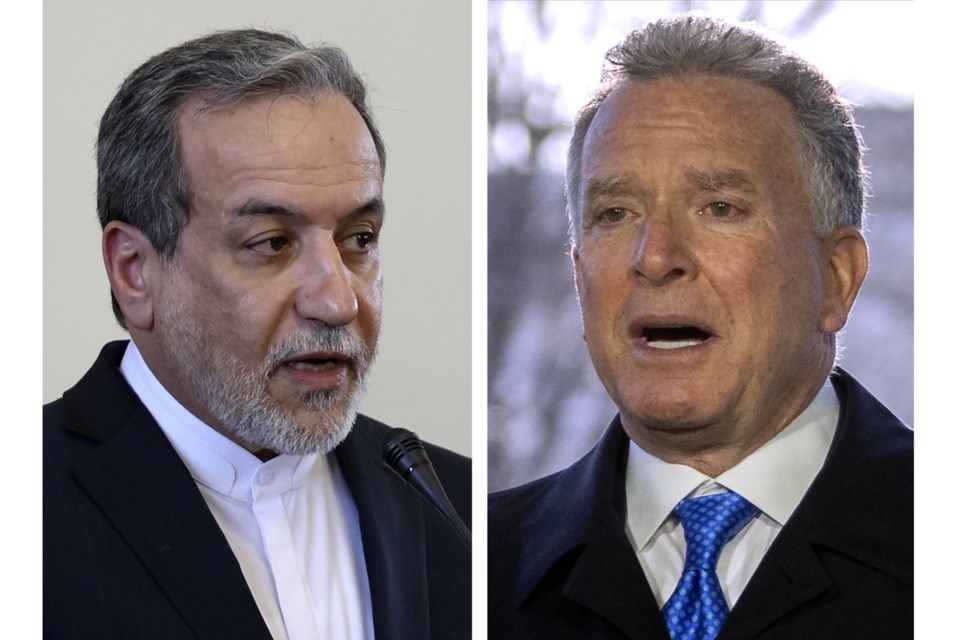DUBAI, United Arab Emirates (AP) — Planned negotiations between Iran and the United States this weekend over Tehran’s rapidly advancing nuclear program have been postponed, Oman announced Thursday.
A message online from Omani Foreign Minister Badr al-Busaidi made the announcement in a post on the social platform X.
“For logistical reasons we are rescheduling the US Iran meeting provisionally planned for Saturday May 3rd,” he wrote. “New dates will be announced when mutually agreed.”
Al-Busaidi, who has mediated the talks through three rounds so far, did not elaborate.
Iran's Foreign Ministry spokesperson Esmail Baghaei issued a statement describing the talks as being “postponed at the request of Oman’s foreign minister.” He said Iran remain committed to reaching ”a fair and lasting agreement."
Meanwhile, a person familiar with the U.S. negotiators said that America “had never confirmed its participation” in a fourth round of talks in Rome. However, the person said the U.S. expected the talks to occur “in the near future.” The person spoke on condition of anonymity to discuss the closed-door negotiations.
Rome soon will see the Vatican begin the conclave on Wednesday to pick a new pope after the death of Pope Francis. Two other rounds of talks have been held in Muscat, the capital of Oman.
The talks seek to limit Iran’s nuclear program in exchange for the lifting of some of the crushing economic sanctions the U.S. has imposed on the Islamic Republic closing in on a half-century of enmity. The negotiations have been led by Iranian Foreign Minister Abbas Araghchi and U.S. Mideast envoy Steve Witkoff.
U.S. President Donald Trump has repeatedly threatened to unleash airstrikes targeting Iran’s program if a deal isn’t reached. Iranian officials increasingly warn that they could pursue a nuclear weapon with their stockpile of uranium enriched to near weapons-grade levels.
Iran’s 2015 nuclear deal with world powers did limit Tehran’s program. However, Trump unilaterally withdrew from it in 2018, setting in motion years of attacks and tensions. The wider Middle East also remains on edge over the Israel-Hamas war in the Gaza Strip.
Meanwhile, the U.S. continues an airstrike campaign, called “Operation Rough Rider,” that has been targeting Yemen's Houthi rebels, who long have been backed by Iran. U.S. Defense Secretary Pete Hegseth early Thursday warned Iran over the rebels.
“Message to IRAN: We see your LETHAL support to The Houthis. We know exactly what you are doing,” he wrote. “You know very well what the U.S. Military is capable of — and you were warned. You will pay the CONSEQUENCE at the time and place of our choosing.”
Last Saturday's round of talks, which included experts drilling down into the details of a possible deal, also took place as an explosion rocked an Iranian port, killing at least 70 people and injuring more than 1,000 others.
___
Associated Press writers Amir Vahdat in Tehran, Iran, and Matthew Lee in Washington contributed to this report.
Jon Gambrell, The Associated Press



